Vietnam National Innovation Alliance for Pig Biosecurity launched
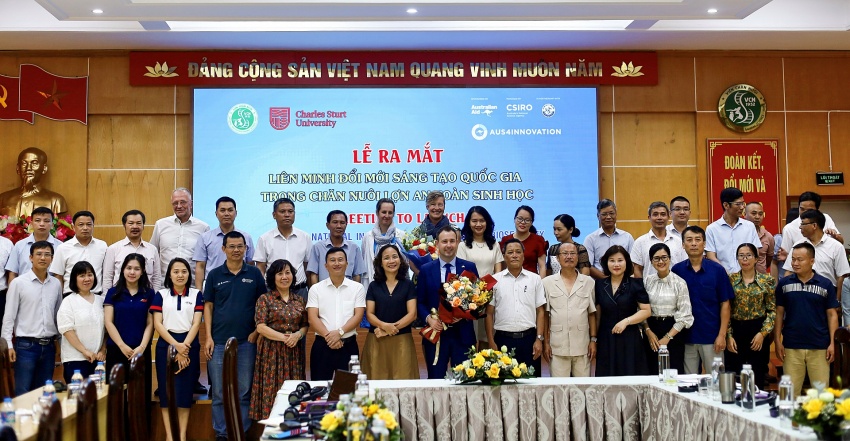 |
| The Vietnam National Innovation Alliance for Pig Biosecurity launch |
Critical findings from a comprehensive study on the vulnerability of smallholder pig farmers to biosecurity risks and diseases, such as African Swine Fever (ASF), were also shared at the launch event.
The pressing need to bolster Vietnam’s pig farming industry against ASF has never been more urgent. Since 2019, the epidemic has wreaked havoc, with smallholders, who compose 99.8 per cent of the industry, being significantly affected due to poor biosecurity measures. The inauguration of the alliance and the revelations from the pilot study underscore the commitment to elevating biosecurity as a frontline defence against ASF and other diseases.
The study, a collaborative effort between the National Institute for Animal Sciences, Australia’s national science agency (CSIRO), and Charles Sturt University, aimed to unearth the biosecurity challenges and innovation opportunities at the smallholder level. Engaging with smallholder pig producers, the study employed a nuanced approach in collecting data and assessing vulnerabilities and resilience against ASF within the value chain.
Australian Ambassador to Vietnam H.E. Andrew Goledzinowski said, "The launch of the alliance is a foundational step towards a secure, sustainable future for pig farming in Vietnam. Adopting innovative biosecurity practices is pivotal not only to improving the livelihoods of farmers, but also to ensuring the resilience of the food supply chain and managing the environmental impact. Our financial and technical support to the alliance underpins Australia's unwavering dedication to serving as Vietnam's trusted partner in innovation and scientific advancement, thereby strengthening the strategic partnership between our nations."
Kim Wimbush, CSIRO counselor and director of the Aus4Innovation programme, said, "Through the CSIRO managed, Aus4Innovation programme, we are dedicated to strengthening the alliance by way of a comprehensive support strategy. We will provide financial resources to fuel the activities of the alliance. Moreover, we will actively seek out and deliver expert assistance, offer research advice, and support implementation efforts. Our role also encompasses facilitating and enhancing interactions among members and other elements within the innovation ecosystem to successfully commercialise Vietnam-Australia research outcomes."
Echoing the sentiments, Dr Pham Cong Thieu, general director of the National Institute of Animal Sciences emphasised, “This alliance marks a proactive move to elevate the standards of Vietnamese pig farming. On the other hand, this insightful research offers a gateway to developing targeted vulnerability and resilience assessment tools, significantly contributing to our collective efforts in safeguarding the pig farming industry."
The study, spanning 160 pig farming households across Ha Nam, Hoa Binh, and Bac Giang provinces, found that Hoa Binh was particularly susceptible to disease incursion. The income from pig farming inversely affected disease vulnerability, and the research provides a foundation for future biosecurity policy and practice.
The launch of the Vietnam National Alliance for Pig Biosecurity and the study's findings mark a pivotal advancement in combating the biosecurity challenges confronting Vietnam's pig farming industry. Together, they lay the groundwork for innovative solutions and policies aimed at protecting smallholder livelihoods, ensuring food safety, and bolstering the industry's resilience against diseases.
This study and alliance are supported by Aus4Innovation, a ten-year (2018-2028) A$33.5 million ($22.26 million) flagship programme aimed at strengthening Vietnam’s innovation system to support inclusive and sustainable socioeconomic development. The programme is funded by Australia’s Department of Foreign Affairs and Trade, co-funded and managed by CSIRO – Australia’s national science agency, and delivered in a strategic partnership with Vietnam’s Ministry of Science and Technology.
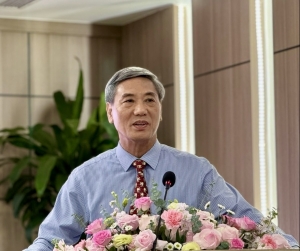 | New framework proposed to assess foreign-invested projects The Institute of International Investment Studies (ISC) last week launched research results on criteria for appraising foreign-invested projects and assessing their effectiveness. The research financed by the Australian Department of Foreign Affairs and Trade to support localities. Dr. Ngo Cong Thanh, vice chairman of the ISC, and head of the research team of the criteria told VIR’s Oanh Nguyen about their work. |
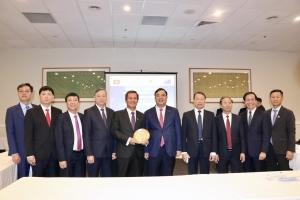 | WoolProducers Australia to invest $66 million in Nam Dinh WoolProducers Australia (WPA) last week inked a MoU with Cat Tuong Group – the investor of Rang Dong Industrial Park – in Nam Dinh province to develop a $66 million project in the park. |
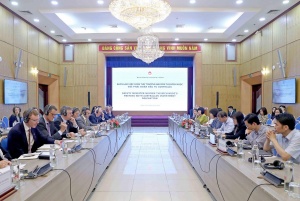 | Australian firms show interest in Vietnam’s green transition Further cooperation and investment in science, technology, trade promotion, innovation, digitalisation, and the green transition were all topics that were discussed during an Australian business delegation's visit to the Ministry of Planning and Investment (MPI) on June 4. |
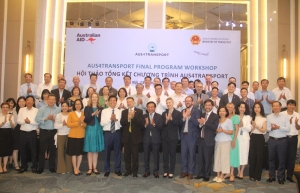 | Aus4Transport strengthens Vietnam and Australia transport ties Aus4Transport has helped improve Vietnam's transport infrastructure, contributing to further deepening cooperation between Vietnam and Australia in the transport sector. |
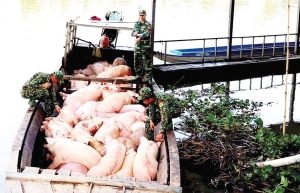 | Smuggling continues to harm livestock gain The livestock industry is struggling to cope with the increase in smuggled pig operations. |
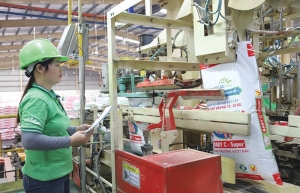 | Profits still out of reach for pig farming companies Despite the total herd increasing to a new high, 2023 has been called a poor year for the pig farming industry, with businesses and farmers failing to make a profit. |
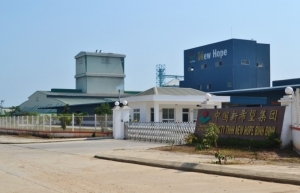 | New Hope ceases Binh Dinh pig-breeding project New Hope Binh Dinh Livestock Co., Ltd has decided to wind up its high-tech swine farm project in the south-central coastal province due to overly complicated procedures and protests from local people. |
What the stars mean:
★ Poor ★ ★ Promising ★★★ Good ★★★★ Very good ★★★★★ Exceptional
Related Contents
Latest News
More News
- Vietnam forest protection initiative launched (February 07, 2026 | 09:00)
- China buys $1.5bn of Vietnam farm produce in early 2026 (February 06, 2026 | 20:00)
- Vietnam-South Africa strategic partnership boosts business links (February 06, 2026 | 13:28)
- Mondelez Kinh Do renews the spirit of togetherness (February 06, 2026 | 09:35)
- Seafood exports rise in January (February 05, 2026 | 17:31)
- Accelerating digitalisation of air traffic services in Vietnam (February 05, 2026 | 17:30)
- Ekko raises $4.2 million to improve employee retention and financial wellbeing (February 05, 2026 | 17:28)
- Dassault Systèmes and Nvidia to build platform powering virtual twins (February 04, 2026 | 08:00)
- The PAN Group acquires $56 million in after-tax profit in 2025 (February 03, 2026 | 13:06)
- Young entrepreneurs community to accelerate admin reform (February 03, 2026 | 13:04)

 Tag:
Tag:




















 Mobile Version
Mobile Version